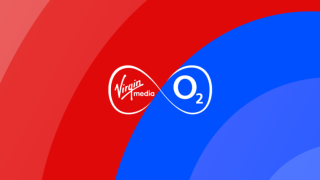A report says that there has been “a nationwide collapse of connectivity registered in Bahamas … knocking out remaining networks; estimated 80% now offline.”
Relief agencies say “Hurricane Dorian has caused extensive damage across the islands of Abaco and Grand Bahama in the Bahamas. … As many as 13,000 houses may have been severely damaged or destroyed. On the island of Abaco, extensive flooding is believed to have contaminated wells with saltwater, creating an urgent need for clean water.”
Jean-François Cazenave, president of Télécoms Sans Frontières (TSF), the industry’s relief agency, said its emergency teams have been mobilised “in the US, our regional base for the Caribbean and our international headquarters”.
TSF said that mobile and landline communications are “completely down” on the island of Abaco.
“In view of the situation, a team of TSF is already on its way from our regional office in Mexico and a second team will leave tomorrow morning from our international headquarters in France. Once in Nassau, the capital, they will try to reach the disaster areas as soon as possible to help the humanitarian coordination and to respond to the needs of the affected populations.”
As a significant demonstration of the damage that has been done, the Bahamas Telecommunications Company (BTC), owned by C&W Communications, has been unable to update customers about the situation. Its last news update was more than two weeks ago.
But in June, at the start of the hurricane season Inge Smidts, CEO of C&W and Liberty Latin America, said the company “has been actively preparing for the 2019 hurricane season and has already completed a series of rigorous hurricane drills across its markets”.
Unfortunately Dorian has been too powerful and disruptive, even though since 2017 C&W has invested $500 million in hurricane restoration across its Caribbean operations.
In the US, Ajit Pai, chairman of the Federal Communications Commission (FCC), said: “Our staff has reached out to wireless carriers and broadcasters to offer assistance.”
He said: “With our government partners, including FEMA [the Federal Emergency Management Agency], we have worked to ensure that communications providers and power companies closely coordinate their activities as needed when service restoration efforts get underway – making sure they implement lessons learned from hurricane Michael. And we have reminded wireless carriers of the need to have roaming agreements in place before the storm hits.”
US wireless carriers have announced a series of measures in preparation for Dorian hitting the North American mainland.
Sprint’s VP of network, Joe Meyer, said yesterday that “Sprint has deployed its network and emergency response strike teams throughout the coastal region, as well as temporary cell sites, portable generators, fuel trucks and temporary backhaul equipment for immediate deployment to keep our sites operational if needed.”
But he said that “Sprint has seen no storm related impacts to our network in Florida following Hurricane Dorian’s U.S. landfall. We will continue to monitor hurricane impacts across the state and will respond if needs arise.”
Verizon said its consumer customers in Florida, Georgia and South Carolina in the path of the hurricane will receive unlimited calling until next Monday, 9 September – but only to certain counties in the affected area.
The company said it is “mobilising charging stations, devices, special equipment, emergency vehicles and more to support local, state and federal agencies across the US”.
AT&T said it is providing unlimited talk, text and data access in certain areas until 11 September. “To make this possible we’re automatically issuing credits and waiving additional service charges for AT&T wireless customers with billing addresses and AT&T prepaid customers with phone numbers in directly impacted zip codes.”
T-Mobile said it was waiving roaming fees for customers in the Bahamas for voice, text, and data until 14 September. “We’re also making it free to call and text from the United States to the Bahamas.”






